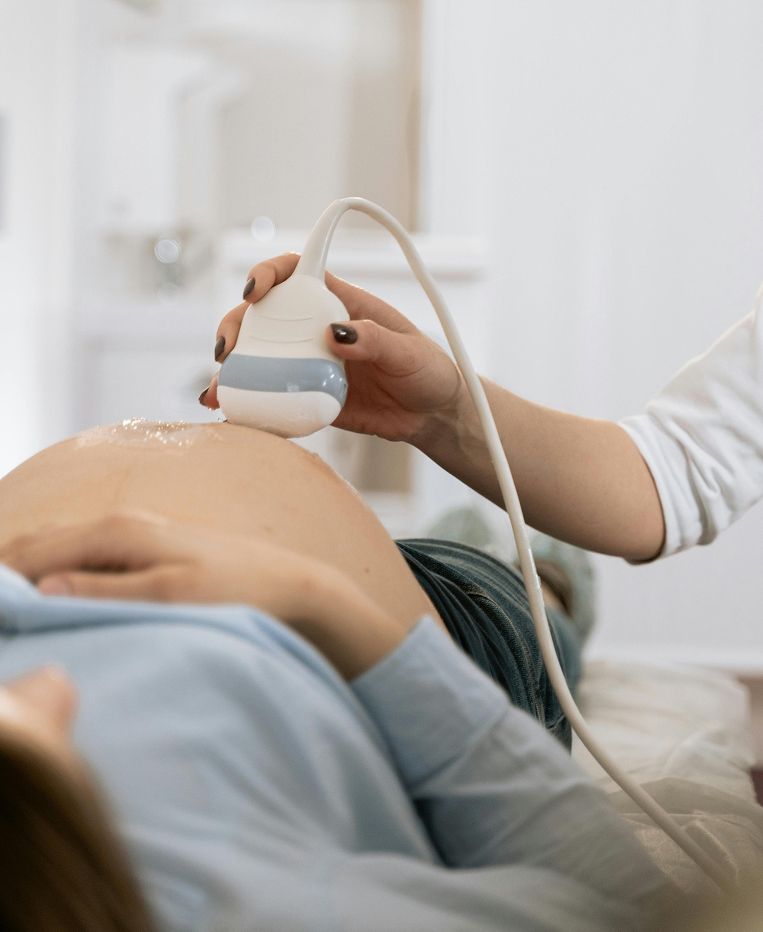Pre-Pregnancy Health & Fertility Assessment
Preparing for pregnancy is one of the most important steps a woman or couple can take to improve their chances of a healthy conception, pregnancy, and baby.
At Monash Obstetrics in Melbourne, our specialists provide comprehensive pre-pregnancy health and fertility assessments for both women and men. These assessments help identify factors that may affect fertility or pregnancy outcomes and allow time to address them before conception occurs.
Every person’s journey to parenthood is unique. Some couples conceive easily, while others may require guidance, investigations or medical assistance. Whether you are just starting to plan for a family or have been trying to conceive for some time, our team offers personalised assessments based on the latest reproductive and obstetric medicine.

Why Pre-Pregnancy Health Matters
A healthy pregnancy begins well before conception. Studies show that optimising health in the months leading up to pregnancy significantly improves the likelihood of successful conception and reduces risks such as miscarriage, pre-term birth, gestational diabetes, and congenital anomalies.
The pre-conception period – often defined as the three-to-six months before trying for a baby – is an ideal time to assess overall wellbeing, review medications, address nutritional needs, and identify any underlying medical or gynaecological issues. For men, sperm quality and lifestyle factors can also have a major influence on conception and pregnancy outcomes.
Common Components of a Pre-Pregnancy Assessment
At Monash Obstetrics, your consultation will typically include:
- Comprehensive medical history review – including menstrual history, previous pregnancies, medical and surgical history, family health background, and current medications.
- Lifestyle and environmental assessment – covering smoking, alcohol use, recreational drug exposure, exercise, weight, stress, and occupational factors.
- Physical examination – where indicated, to assess reproductive and general health.
- Blood and genetic testing – to check immunity to infections such as rubella and varicella, blood type, iron and vitamin levels, thyroid function, and carrier screening for genetic conditions if appropriate.
- Fertility investigations – for women, this may include hormonal profiling and pelvic ultrasound; for men, semen analysis and review of lifestyle or environmental influences.
This comprehensive assessment allows your doctor to provide tailored advice to maximise your chances of a healthy conception and pregnancy.
Patient-Centric Care
Female Fertility Factors
For women, fertility can be influenced by several physiological and lifestyle factors:
- Age: Female fertility naturally declines from the early 30s and more steeply after 35. In Australia, around one-in-six couples experience difficulty conceiving, with maternal age being the leading contributor.
- Ovulatory function: Irregular cycles, polycystic ovarian syndrome (PCOS), or thyroid disorders can disrupt ovulation.
- Fallopian tube health: Past pelvic infections, endometriosis, or prior surgery may cause tubal blockage or scarring.
- Uterine conditions: Fibroids, polyps or structural abnormalities can affect implantation.
- Lifestyle influences: Smoking, obesity, excessive exercise, poor nutrition and alcohol intake all reduce fertility potential.
Male Fertility Factors
Male fertility plays an equal role in conception. Around 30% of infertility cases involve male factors, and another 30% involve both partners. Common issues include:
- Semen quality: Low sperm count, poor motility, or abnormal morphology.
- Hormonal imbalance: Low testosterone or other endocrine disorders.
- Environmental exposures: Heat, toxins, radiation or anabolic steroid use.
- Lifestyle influences: Smoking, alcohol, obesity and stress are all linked to reduced sperm quality.
Our specialists work closely with both partners to ensure a holistic approach to assessment and management.
Pre-Pregnancy Counselling and Risk Reduction
During your assessment, your Monash Obstetrics specialist will also discuss:
- Vaccination status: Ensuring immunity to rubella, varicella, hepatitis B and whooping cough.
- Medication safety: Reviewing prescriptions and supplements for safety in pregnancy.
- Nutritional guidance: Including folic acid, iodine and vitamin D supplementation.
- Chronic health management: Addressing pre-existing conditions such as diabetes, hypertension, thyroid disease, epilepsy, and autoimmune disorders.
- Weight management and physical activity: Achieving a healthy BMI can improve fertility and reduce pregnancy complications.
- Mental health: Screening and support for anxiety, depression, or prior trauma related to pregnancy or fertility.
Fertility Assessments and Investigations
If you have been trying to conceive without success, our team provides detailed fertility investigations to determine possible causes.
For women, investigations may include:
- Hormonal blood tests (AMH, FSH, LH, oestradiol, progesterone).
- Pelvic ultrasound or sonohysterogram to assess ovulation and uterine anatomy.
- Hysterosalpingogram (HSG) to check fallopian tube patency.
- Laparoscopy if endometriosis or pelvic adhesions are suspected.
For men, investigations may include:
- Semen analysis (to evaluate sperm count, motility and morphology).
- Hormonal testing for testosterone and pituitary function.
- Scrotal ultrasound if varicocele or obstruction is suspected.
Once results are available, your specialist will outline treatment options or refer you to assisted reproductive technologies such as IVF if indicated.

You should consider seeking advice if:
- You have been trying to conceive for 12 months (or 6 months if over 35).
- Your periods are irregular, absent or unusually painful.
- You have a history of pelvic infection, endometriosis, or miscarriage.
- Your partner has known sperm issues or medical conditions affecting fertility.
Early assessment helps avoid unnecessary delays and maximises the window for successful conception.
Before considering fertility treatment, lifestyle modification often plays a vital role:
- Maintain a balanced diet rich in fruits, vegetables, lean proteins, and whole grains.
- Avoid tobacco, excessive caffeine, and alcohol.
- Aim for a healthy BMI and regular moderate exercise.
- Reduce stress and prioritise sleep.
- Track ovulation to identify your most fertile days.
Our team can provide individualised guidance to optimise natural fertility.
Monash Obstetrics brings together highly experienced specialist obstetricians and gynaecologists who offer an integrated approach to fertility and pregnancy care. Located in Melbourne, our clinic combines decades of clinical experience with the latest diagnostic and treatment technologies.
Patients appreciate our compassionate, personalised care and the convenience of having fertility assessments, obstetric and gynaecological services all under one roof. Whether you are planning your first pregnancy or seeking help after months of trying, Monash Obstetrics provides the expertise and support you need to take the next step confidently.
Book Your Consultation and Start Your Journey Today
Ready to take the next step in your health, fertility or pregnancy care? Contact us today to schedule an appointment with one of our specialist.